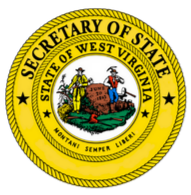Release from the The Problem Gamblers Help Network of West Virginia:
CHARLESTON, W.Va. As news spreads of the recent Supreme Court decision paving the way for legalized sports betting, many people are excited about the prospect of betting on games.
For some, this is just a different way to do something they’ve done for years. According to the American Gaming Association, an estimated $150 billion is spent on illegal sports wagering. However, for many people this will mean a new exposure to something that, now legal, appears to offer more transparency and appeal.
The Problem Gamblers Help Network of West Virginia, the group that operates the 1-800-GAMBLER helpline, says it is fully prepared to offer treatment to anyone who calls the helpline asking for help with a sports betting addiction. The bill that passed in WV this year, in anticipation of this Supreme Court decision, specifies that the group’s phone number must be present where betting takes place, whether in a casino or on a mobile app.
Sheila Moran, director of communications for the 1-800-GAMBLER program, said they have already begun making plans for a statewide training on sports betting for their network therapists.
“Our clinicians are experts at treating gambling addiction, regardless of the type of gambling a person is doing. However, right now most of our callers are playing slot machines and video poker, and the sports bettor is a very different type of client. Their motivations for playing and their general psychology are very different. Also, it’s essential that the treating clinician have a good grasp of all the terminology used in sports betting. We have plans in place to make sure all our clinicians have the training they need within the next 60 days,” Moran said.
Moran said gambling addiction is a serious problem for many people in West Virginia. Studies have shown one percent of the population has a serious gambling problem, and another two to three percent show symptoms of the disorder. She says in addition to financial ruin, problem gamblers are at high risk for depression, suicide, and substance abuse.
Anyone who thinks they or a loved one need help with a gambling problem is urged to call 1-800-GAMBLER for free help. Callers speak with a helpline counselor based in Charleston, and they are referred to one of the network’s 60+ specially trained gambling addiction counselors and support groups. Follow-up studies with helpline callers show that the majority of callers are able to stop gambling within six months of entering treatment.




